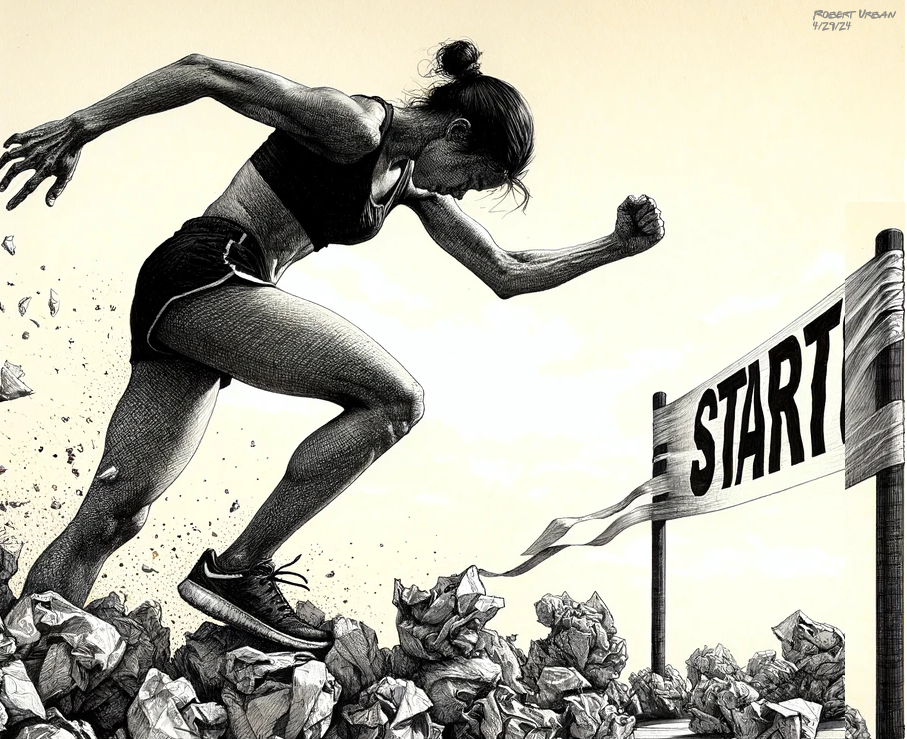Start.

The entire purpose of the first draft is for it to simply exist. It will suck. Doesn’t matter. Get your thoughts on paper. Don’t worry about structure, voice, flow, audience, character, timing, etc.- just get your idea/story/song/whatever out of your head and onto something tangible.
Crossing the starting line is the goal.
Here are some writer’s a little more well known than me (for now) that have something to say about first drafts.
- “The first draft is just you telling yourself the story.” – Terry Pratchett
- “The first draft is the child’s draft, where you let it all pour out and then let it romp all over the place, knowing that no one is going to see it and that you can shape it later.” – Anne Lamott
- “Almost all good writing begins with terrible first efforts. You need to start somewhere.” – Anne Lamott
- “Get it down. Take chances. It may be bad, but it’s the only way you can do anything really good.” – William Faulkner
- “The first draft is just putting sand in the sandbox.” – Robin Sloan
- “The only kind of writing is rewriting.” – Ernest Hemingway
- “The first draft is you telling yourself the story.” – John Dufresne
- “The first draft is nothing more than a starting point, so be prepared to change it.” – Ron Kaufman
- “All writing is rewriting.” – Vladimir Nabokov
- “The first draft is your chance to tell yourself the story.” – Sir Terry Pratchett
Here is some other of my advice about the first draft.
- Embrace Imperfection: Understand that the first draft is not about perfection but about getting your ideas down on paper. Allow yourself to write freely without worrying about grammar, structure, or polish.
- Keep Moving Forward: Avoid the temptation to constantly revise as you write. Focus on progressing through the story, even if it means leaving placeholders or notes for areas that need further development.
- Silence Your Inner Critic: Silence the voice of doubt and self-criticism during the first draft. Give yourself permission to write poorly and make mistakes, knowing that you can refine and improve your work in later drafts.
- Trust the Process: Trust in the process of writing. Understand that creativity often flourishes when you allow yourself the freedom to explore different ideas and directions without judgment.
- Set Realistic Goals: Establish achievable goals for your writing sessions, whether it’s a daily word count or a specific scene to complete. Breaking down the writing process into manageable tasks can help maintain momentum and motivation throughout the first draft.
